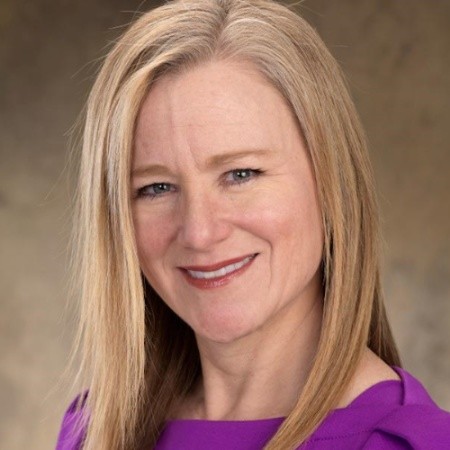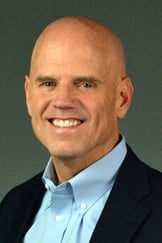The Bass, Berry & Sims Healthcare Private Equity Team is pleased to share with you our first installment of the BBS Connect Newsletter for 2024. This publication is an extension of our OP Talent Network (OPT-N), which connects middle-market healthcare-focused private equity funds with experienced executives. Each installment will introduce you to the impressive and insightful professionals that are part of our network.
In this edition, we are pleased to feature insights from Lisa Dombro, Chief Growth Officer of Upstream Rehabilitation Inc. and an operating partner with Revelstoke Capital Partners, and Dan Kohl, former CEO of CarePlus Anesthesia Management.
Featured Q&As
 Lisa Dombro – Chief Growth Officer, Upstream Rehabilitation Inc., a Revelstoke Capital Partners Portfolio Company
Lisa Dombro – Chief Growth Officer, Upstream Rehabilitation Inc., a Revelstoke Capital Partners Portfolio Company
Lisa has worked to make the healthcare system better for the last 30 years in multiple specialty areas including neurosurgery, neurology, orthopedics, and nephrology and developed growth strategies for industry-leading companies such as Agilon Health, Surgical Care Affiliates, and Fresenius Medical Care. She is a champion of female equity initiatives including the opportunity to create equity in compensation and leadership roles for female providers through value-based care models and working parent support resources.
What were your private equity funds looking for in an operating partner? What specifically attracted you to the role? How did you find the role, or how did the role find you?
I have held the role of operating partner for an exclusively healthcare focused private equity firm for over two years. At the time I joined the firm, I believe the market was hitting an important tipping point: the realization that value-based care was here to stay and many growth-oriented healthcare services organizations needed to develop a value-based care strategy to complement their more traditional operating models. In my experience, there are frequently significant synergies between the capabilities needed to create a differentiated, patient-centered operating model on a fee-for-service chassis with those needed for a strong foundation to succeed in value-based care. I offered the firm significant experience with both primary care and specialty-oriented value-based models along with strong operations experience in payor contracting, quality, and growth-oriented functions. It was through my professional network that I was introduced to the firm and they offered me the opportunity to not only become an operating partner, but to also fill a key executive role within one of their portfolio companies. It was a very unique opportunity that I couldn’t pass up.
Operating partners are proven business leaders and have successful track records of creating value in companies. What is the most important asset you bring to the role?
My role as an operating partner varies based upon the needs of the portfolio company and team I engage with. For example, I sit on the board of one of the firms more recent investments into a smaller platform designed for primary-care focused value-based care for seniors. The CEO for this platform is a first-time CEO and new to the private equity portfolio company structure. I frequently act as a sounding board for the CEO on general management topics, as well as help make connections with industry resources and stakeholders. This directly contrasts with my role with another portfolio company whose leadership team is very seasoned, but new to value-based care and some of its nuances. I play a more focused subject matter expert role in that circumstance.
Some operating partner’s role is to help evaluate target companies. What unique perspective does the operating partner role provide in this process?
Most private equity partners and principals have never held an operations role within an organization. As part of the team evaluating new investment opportunities, my perspectives and expertise help highlight areas of potential execution risk which warrant further discovery during the diligence process and also help orient the pitch to appeal to the seller, which frequently reflects an operations-oriented audience. My experience working with physicians, with hospital and health plan executives, and with founders enables me to identify with their concerns, biases, and their decision frameworks.
 Dan Kohl – Former Chief Executive Officer, CarePlus Anesthesia Management
Dan Kohl – Former Chief Executive Officer, CarePlus Anesthesia Management
With over 30 years’ experience, Dan served as CEO of three health-related companies prior to joining CarePlus, including Halcyon Healthcare, Pediatric Services of America, and Housecall Medical Resources. He also directed all business activities for Equifax’s entrance into the health information market.
When thinking about successful partnerships with investors, or potential targets, what are some of the key attributes that come to mind?
Most important is alignment.
An operating partner must be aligned with the CEO of the business and the investors. This alignment should be on a strategic level, operating model level, and a cultural level.
The second attribute is undoubtedly expectations.
It is critically important that there is clarity around what results should look like and what the related timing is. For an operating partner to assist the CEO, they must be on the same page as investors about what the future business should look like and when.
The third attribute would be communication.
Great communication is crucial for all involved. Some things to consider are: what metrics are tracked and when; what sort of follow-up takes place to stay informed on performance yet allow the CEO to truly run their business; how is the management team held accountable around performance; and what role should the operating partner and investors play to assist the CEO?
Operating partners are proven business leaders and have successful track records of creating value in companies. What is the most important asset you bring to the role?
The most important asset is experience. What’s the old saying “Experience isn’t expensive…it’s priceless”? I’ve been in some high-growth situations and some challenging operating environments. Thriving in both provides a perspective that allows you to assist folks going through either.
I have always found it helpful to speak to board members when struggling with different dynamics to get a fresh perspective around what the next move should be to act as a sounding board and glean experience of others.
Some operating partners are responsible for assessing leadership strengths and building executive teams. What perspective does your role provide when evaluating talent? What are some of the key attributes that you look for?
I love being helpful in building teams. Finding the right mix of skills, perspective, leadership, and attitude is critical when getting the best folks together and focused on results. The interplay between the team allows for the right kind of culture to be built and attracts a focused and determined set of associates that understand the mission and commit to its achievement.
Involving senior leadership to select new team members gains their buy-in to helping them succeed and supporting their success. As new members of the team are recruited it is very important to assess exactly what would make the overall team stronger based upon the challenges at hand.


